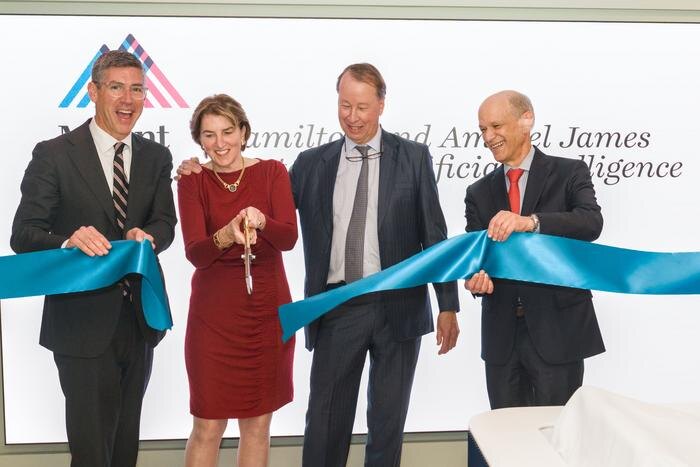THE LATEST
Revolutionizing healthcare: The Hamilton and Amabel James Center for Artificial Intelligence, Human Health

Amidst the hustle and bustle of New York City, a new beacon of hope has emerged in healthcare innovation. The Mount Sinai Health System has boldly stepped into the future with the grand opening of the Hamilton and Amabel James Center for Artificial Intelligence and Human Health. This state-of-the-art facility is poised to embark on a transformative journey, spearheading the AI revolution in healthcare.
The Center is a testament to Mount Sinai's unwavering commitment to revolutionizing patient care through groundbreaking innovation and technology. It symbolizes progress, embodying the convergence of artificial intelligence, data science, and genomics in the heart of Manhattan. As one of the first at a US medical school, the Center sets a new precedent for integrating AI technology across various healthcare domains, including genomics, imaging, pathology, and electronic health records.
The driving force behind this monumental endeavor is the generous support from Hamilton Evans, Tony James, and his wife, Amabel. Their investment has culminated in a 12-story, 65,000-square-foot beacon of progress, providing a home for approximately 40 Principal Investigators and 250 support staff. Their generosity has laid the foundation for a collaborative environment, fostering interdisciplinary research to deepen our understanding, diagnosis, and treatment of human diseases.
The integration of artificial intelligence in healthcare holds the promise of transforming how we diagnose and treat patients, reshaping the very fabric of the future of healthcare. The Mount Sinai Health System has been at the forefront of AI research and development and has established a dedicated AI research center to cultivate an optimal environment for researchers. This will lead to groundbreaking discoveries that will fundamentally change the landscape of human health.
Mount Sinai's values and vision, epitomized in the opening of the Hamilton and Amabel James Center, reflect a commitment to using artificial intelligence for the greater good. This bold initiative signifies a leap towards significant progress in healthcare and shines a beacon of hope for future breakthroughs in AI research and development within academic institutions.
Mount Sinai's perseverance and dedication in realizing this ambitious project are truly commendable. Modernizing an existing building has created a space that aligns with contemporary standards and encompasses core facilities dedicated to driving forward their AI initiatives. These initiatives include the Windreich Department of AI and Human Health, the Hasso Plattner Institute for Digital Health at Mount Sinai, the Institute for Genomic Health, the Biomedical Engineering and Imaging Institute, and the Institute for Personalized Medicine.
Mount Sinai's Windreich Department of AI and Human Health, the first of its kind in a US medical school, is a testament to its commitment to advancing and optimizing artificial intelligence and human health. Its innovative NutriScan AI application, designed to facilitate faster identification and treatment of malnutrition in hospitalized patients, has earned it prestigious accolades and showcased the impactful application of AI in healthcare.
The Hamilton and Amabel James Center for Artificial Intelligence and Human Health is a testament to the transformative power of collaboration and innovation. Mount Sinai's unwavering dedication to breakthrough science and clinical care is evident in its commitment to driving progress in precision medicine and fostering a culture of innovation and discovery.
As we stand on the cusp of a new era in healthcare, the Hamilton and Amabel James Center serves as a beacon of inspiration. It symbolizes humanity's unyielding pursuit of progress and the relentless drive to overcome the most challenging barriers. It represents hope, progress, and the indomitable spirit of humanity's quest for a healthier tomorrow.
